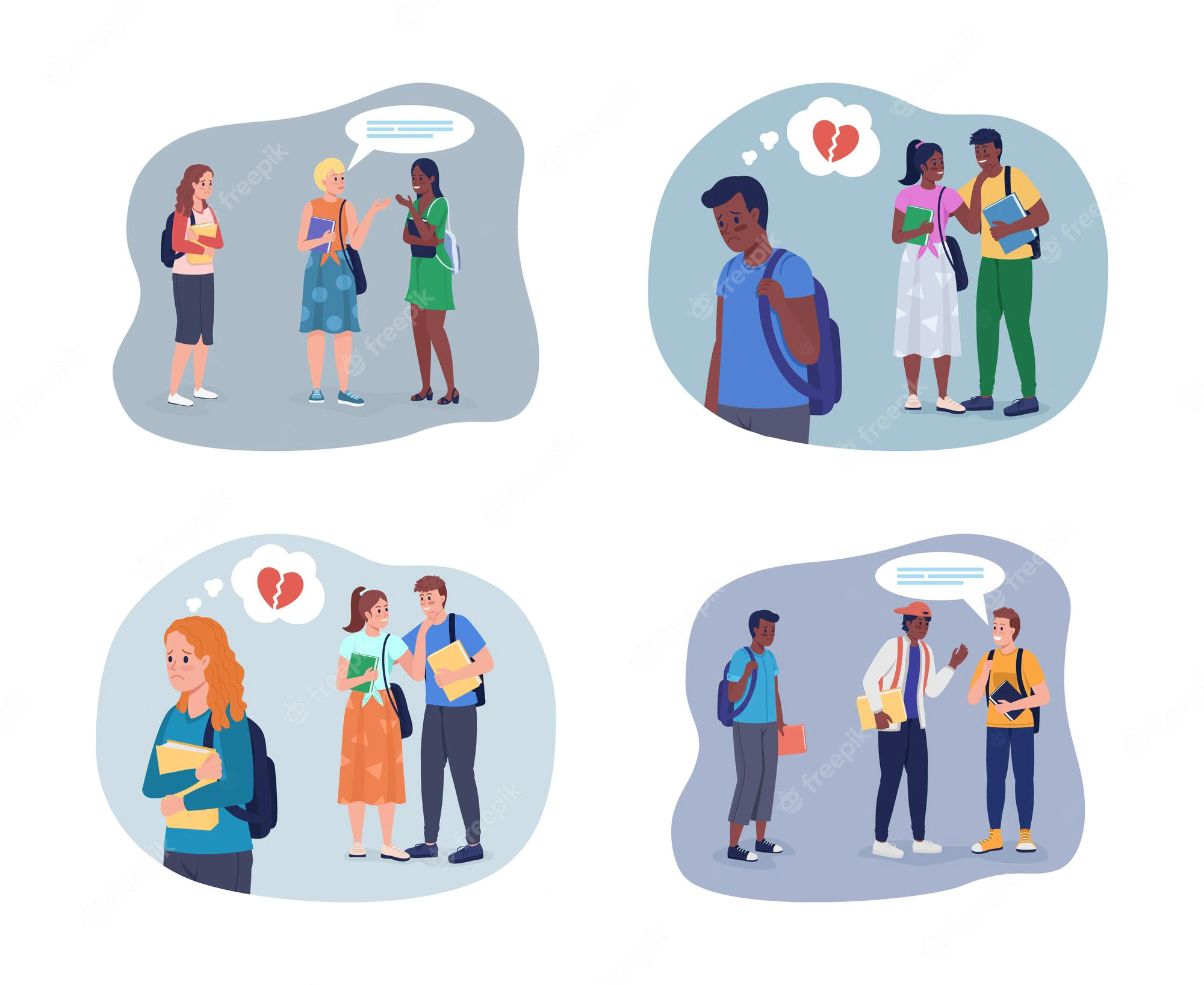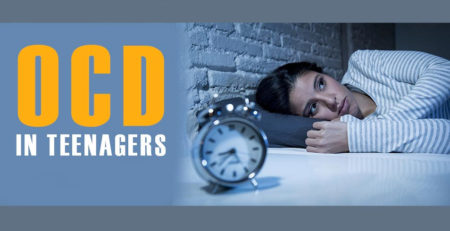Understanding Teen Anxiety: Symptoms and Strategies
As a parent, caregiver, or individual who interacts with teenagers, it’s essential to understand that occasional anxiety is normal. While some teenagers may experience temporary worry about their schoolwork, peer relationships, or future goals, others may feel overwhelming anxiety that interferes with their daily activities. Anxiety disorders can be debilitating, and it’s crucial to identify the symptoms and strategies to support teenagers experiencing anxiety.
Symptoms of Teen Anxiety
Symptoms of teen anxiety can vary depending on the type of anxiety disorder. Generalized anxiety disorder symptoms include persistent and excessive worry, restlessness, fatigue, difficulty concentrating, and muscle tension. Panic disorder involves sudden episodes of intense fear, heart palpitations, sweating, trembling, and shortness of breath. Social anxiety disorder symptoms include intense fear of social situations, avoiding social interactions, and physical symptoms such as blushing, sweating, or trembling. Phobia-related disorders involve excessive and persistent fears of specific objects or situations, such as animals or flying.
Symptoms of teen anxiety can include:
-Feeling restless, wound-up, or on-edge
-Being easily fatigued
-Having difficulty concentrating or mind going blank
-Being irritable
-Having muscle tension
-Difficulty sleeping
Common causes of teen anxiety can include:
-Genetics (anxiety can run in families)
-Brain chemistry
-Personality traits (such as being perfectionistic or highly sensitive)
-Environmental factors (such as stress at home or school)
Some common strategies for managing teen anxiety can include the following:
-Exercise: Exercise can help to reduce stress and tension and improve mood. It is also a great way to get out of your head and focus on something else.
-Mindfulness: Mindfulness involves paying attention to the present moment without judgment. This can help you to become more aware of your thoughts and feelings and learn how to manage them in a healthy way.
-Breathing exercises: Taking slow, deep breaths can help to calm the nervous system and ease anxiety symptoms.
-Relaxation techniques: Relaxation techniques such as progressive muscle relaxation or visualization can help to reduce stress and promote relaxation.
Causes of Teen Anxiety
Many factors can contribute to the development of anxiety disorders in teenagers. Genetic factors, brain chemistry, and environmental influences such as prolonged stress or traumatic experiences can all play a role. Many teenagers also experience anxiety due to peer pressure, academic demands, family conflicts, or social isolation.[/porto_blockquote]
Family History
One of the most common causes of teen anxiety is a family history of anxiety or other mental health disorders. If a parent or other close relative suffers from anxiety, depression, or another mental health disorder, a teen is more likely to develop an anxiety disorder.
Major Life Changes
Another common cause of teen anxiety is significant life changes. Teens may experience anxiety when starting high school, moving to a new town, or experiencing any other type of change.
Bullying
Bullying is another major cause of teen anxiety—teens who their peers bully often suffer from anxiety, depression, and low self-esteem. Additionally, bullying can lead to social isolation and difficulty making friends.
Academic Pressure
Academic pressure is another common cause of teen anxiety. Teens may feel anxious about getting good grades, being accepted into college, or meeting other academic goals. Perfectionism Perfectionism is another major cause of teen anxiety. Teens who are perfectionists often put immense pressure on themselves to meet unrealistic standards. This can lead to feelings of inadequacy and failure, even when the teen has done well. Social Media Social media is another common cause of teen anxiety. Teens who spend a lot of time on social media may compare themselves unfavorably to others and feel anxious about their own lives and appearance. Additionally, social media can be a source of cyberbullying, which can further contribute to feelings of anxiety and depression. Traumatic Events Traumatic events such as the death of a loved one, divorce, or natural disasters can also cause teen anxiety. These events can be challenging for teens to cope with and can lead to long-term anxiety disorders.

Strategies to support teenagers experiencing anxiety
As a parent, caregiver, or individual interacting with teenagers, you can support them by creating a safe and supportive environment where they can express their feelings and concerns. Encouraging them to engage in physical activities, such as sports or yoga, can also help to reduce anxiety. Seeking professional help, such as therapy or medication, is also valuable for managing anxiety disorders.
Talk to your teenager about their anxiety.
It is important to talk to your teenager about their anxiety to understand better what they are going through. Try to ask open-ended questions and avoid judgment. It is also important to listen to your teenager and validate their feelings.
Encourage your teenager to exercise.
Exercise can help to reduce stress and improve mood. Encourage your teenager to get at least 30 minutes of exercise every day.
Help your teenager eat a healthy diet.
A healthy diet can help to improve mood and reduce stress. Encourage your teenager to eat plenty of fruits, vegetables, and whole grains and to limit processed foods, sugary foods, and caffeine.
Teach your teenager relaxation techniques.
Relaxation techniques can help to reduce anxiety and improve sleep. Many techniques can be effective, so find one that works for your teenager and teach them how to do it properly.
Encourage your teenager to get enough sleep.
Sleep is important for overall health and well-being and can help reduce anxiety levels. Encourage your teenager to get at least 8 hours of sleep each night.
Help your teenager manage their time effectively.
Time management skills can help to reduce stress levels and improve productivity. Teach your teenager how to make a schedule and stick to it.
Encourage your teenager to connect with friends and family members.
Social support can be very helpful for teenagers experiencing anxiety. Encourage your teenager to stay in touch with friends and family in person or online.
The Importance of Early Intervention
Early intervention is crucial in managing anxiety disorders in teenagers. As parents, caregivers, or individuals interacting with teenagers, it’s essential to recognize the symptoms of anxiety disorders and seek professional help as soon as possible. Anxiety disorders can worsen over time without proper treatment and interfere with daily activities, schoolwork, and relationships.
1. Early intervention is essential for teen anxiety because it can help prevent developing more serious mental health problems later in life.
2. Anxiety is a common mental health problem among teenagers. Studies show that up to one in four teens will experience an anxiety disorder during their teenage years.
3. Anxiety disorders can significantly impact a teenager’s life, causing them to miss out on essential activities, such as school or social events.
4. left untreated, anxiety disorders can lead to more serious mental health problems, such as depression or substance abuse.
5. Early intervention for teen anxiety can involve various approaches, including cognitive-behavioral therapy, medication, and lifestyle changes.
6. Cognitive-behavioral therapy (CBT) is a type of therapy that can help a teenager to change the way they think about and respond to anxiety-provoking situations.
7. Medication can also treat teen anxiety, although it is typically only prescribed if other treatment methods have been unsuccessful.
8. Making lifestyle changes, such as regular exercise and eating a healthy diet, can also help reduce anxiety symptoms.
9. It is essential to seek professional help if you are concerned about your teenager’s anxiety levels, as early intervention can significantly improve the chances of a successful outcome.
10. If you are worried about your teenager’s mental health, many resources are available to help, including the National Alliance on Mental Illness (NAMI).
Self-care strategies for teenagers experiencing anxiety
Teenagers experiencing anxiety can benefit from self-care strategies such as practicing relaxation techniques, engaging in hobbies, maintaining healthy sleep habits, and limiting caffeine and sugar intake. Encouraging them to express their thoughts and feelings through writing or talking with trusted friends or family can also help reduce anxiety.
Identify Your Triggers
One of the first steps in managing anxiety is to identify your triggers. A trigger is anything that causes your anxiety to increase. Common triggers include things like school, social situations, and changes in routine. Once you know your triggers, you can start to develop a plan for how to deal with them.
Avoid Caffeine and Alcohol
Caffeine and alcohol are two substances that can make anxiety worse. Caffeine is a stimulant that can increase your heart rate and make you feel more jittery. Alcohol is a depressant that can make you feel more anxious and stressed. If you find that either of these substances worsens your anxiety, it’s best to avoid them.
Get Enough Sleep
Sleep plays an important role in managing anxiety. When well-rested, you’re better able to cope with stress and manage your emotions. Aim to get 7-8 hours of sleep each night.
Exercise Regularly
Exercise is a great way to reduce stress and improve your overall mental health. It can also help to increase endorphin levels, hormones that have mood-boosting effects. Try to get at least 30 minutes of exercise each day.
Eat a Healthy Diet
What you eat can also affect your anxiety levels. Eating a diet high in processed foods, sugar, and caffeine can worsen anxiety. Eating a healthy diet that includes plenty of fruits, vegetables, and whole grains can help to reduce anxiety symptoms.
Practice Deep Breathing
Deep breathing is a simple but effective way to calm anxiety. When you’re feeling anxious, take a few deep breaths through your nose and out through your mouth. Focus on breathing slowly and evenly. This will help to slow down your heart rate and ease tension in your body.
Try Relaxation Techniques
There are several relaxation techniques that can help to reduce anxiety symptoms. Examples include progressive muscle relaxation, guided imagery, and meditation. These techniques can be done anywhere and only take a few minutes.
Connect with Others
Spending time with friends and family members can help to reduce anxiety levels by providing support and distraction from stressful thoughts or situations. If you don’t have people in your life with who you feel comfortable talking about your anxiety, there are also several online communities dedicated to supporting people with anxiety disorders.
Understanding teen anxiety symptoms, causes, and strategies to support teenagers experiencing anxiety is essential for parents, caregivers, and individuals interacting with teenagers. Early intervention and self-care strategies can help manage anxiety disorders and improve the quality of life for teenagers experiencing anxiety. By creating a safe and supportive environment for teenagers, encouraging physical activities, and seeking professional help when necessary, we can support teenagers experiencing anxiety and help them develop healthy coping mechanisms for managing their anxiety.
Contact us today at 816.819.5166 or schedule your appointment online.












